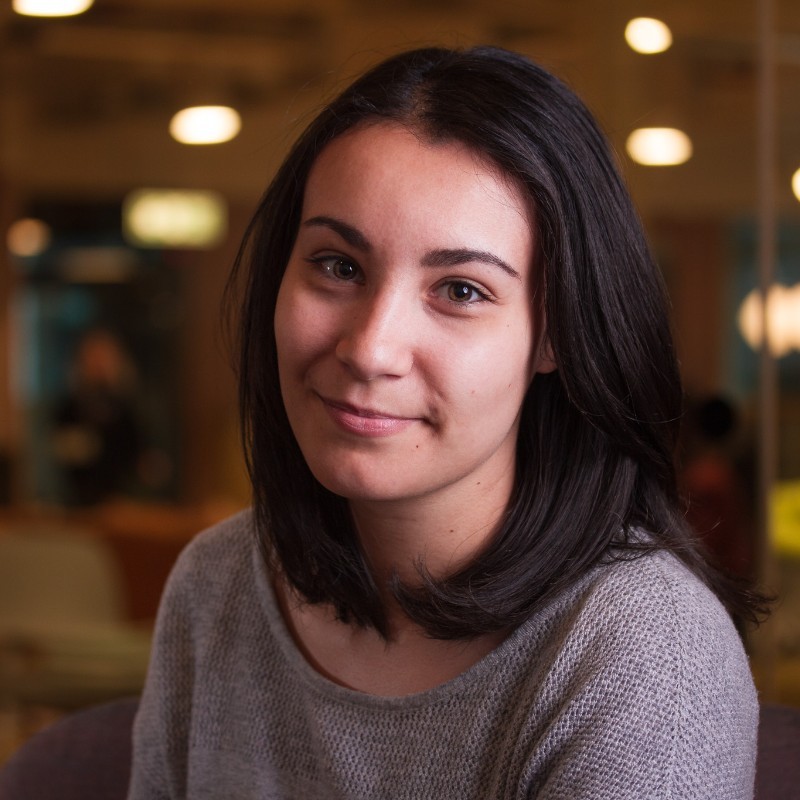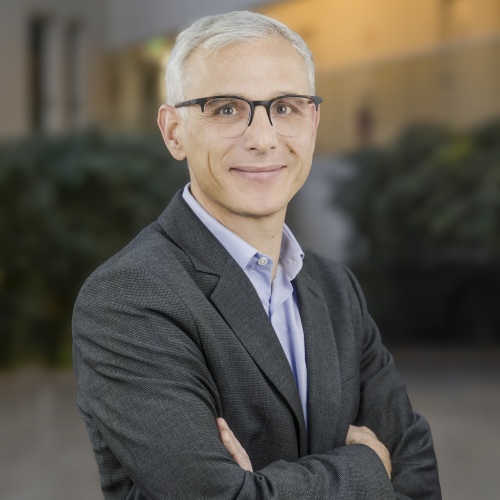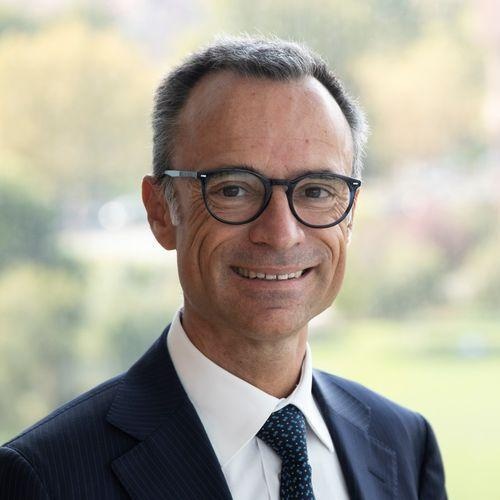Inside ESCP’s AI 1000 Champions initiative
ESCP Business School has launched a bold initiative to integrate generative AI into its academic and operational ecosystem. At the heart of this transformation is a cross-campus network of AI Champions.
Imagine a scenario in which Bruce Wayne—yes, Batman—asks students to devise a plan to boost tourism in Gotham City. This isn’t a scene from the latest superhero blockbuster but The Future of Gotham—an innovative AI-powered role-playing simulation developed by Professor Vitor Lima to challenge students with high-stakes marketing strategies under real-world business constraints.
The Future of Gotham is just one example of the larger AI transformation underway at ESCP. Professor Lima is among the school’s 1,000 AI Champions—a network of professors, students, and staff taking part in the proof-of-concept phase of ESCP’s generative AI (GenAI) integration strategy with OpenAI.
Exploring AI’s potential in business education
In October 2024, ESCP became the first French higher education institution to begin rolling out ChatGPT Edu, a version of the generative AI (GenAI) platform tailored to educational institutions. Supported by the ESCP Foundation, this early-stage deployment forms part of a wider strategy to integrate AI thoughtfully across teaching, research, curriculum development, and administrative operations at ESCP.
“ESCP is proud to be among the first business schools in Europe to work with OpenAI to understand the potential of AI in higher education,” says Anne-Laure Augeard. Augeard is part of the core AI team that is led by Associate Professor Louis-David Benyayer and includes Alexandre Lavallée, an ESCP alumnus and AI specialist. Together, they have helped to implement a platform for experimentation and knowledge-sharing across the ESCP community.
ESCP is proud to be among the first business schools in Europe to work with OpenAI to understand the potential of AI in higher education.
 Anne-Laure Augeard
Anne-Laure AugeardProject Manager Academic Affairs
ESCP Business School
Championing the ethical use of AI in education
Since the rapid rise of GenAI, organisations have been racing to adapt and integrate these tools into their workflows and cultures. At ESCP, the implications are vast, with the implementation of AI tools across the school’s sprawling multi-campus ecosystem and community
Enter ESCP’s AI 1000 Champions, trained to explore how ChatGPT can enhance learning, research, and operations through real-world, experimental projects tied to the ESCP value chain. Projects were selected following a school-wide call for proposals in November 2024.
“A cornerstone of this project is the group of profs who volunteered to be GenAI champions,” says Professor Benyayer. “Their role is to empower students and colleagues with the technology, and to innovate in their teaching and research practices.”
The 73 professor champions represent a broad mix of disciplines, teaching styles, and campuses and are united by a shared commitment to responsible innovation. Since the initiative’s launch, they have been meeting monthly to share insights, discuss challenges, and track progress across campuses.
Integrating AI into teaching and learning
Nine academic programmes are now running AI projects, ranging from ESCP’s Master in Management to its Global Executive PhD. While the experiments vary in design and ambition, they all aim to answer the same question: how can AI enhance, not replace, human creativity and judgement?
“AI is already a reality for most of our students' academic and professional lives. Our role as educators is to make sure that students have the skills to use it responsibly and strategically,” says Augeard.
Professor Alisa Sydow has woven ChatGPT into the Entrepreneurship Lab for MSc students in Digital Transformation. The tool serves as an ideation partner, helping students refine business models and accelerate MVP development. Meanwhile, PhD candidate Valentin Mesa is experimenting with a chatbot that helps students understand assignment expectations and improve their work.
At the doctoral level, Professor Frédéric Fréry and Margot Drancourt - de Lasteyrie, Director of the Global Executive PhD programme, are leading an initiative within the programme focused on the ethical use of AI in research.
“AI is going to be maybe the biggest thing in our lifetime,” says Dr Alara Tascioglu, Postdoctoral Research Fellow in Information & Operations Management at ESCP. “If we didn’t have this initiative, we would feel left behind.”
AI beyond the classroom
The AI 1000 initiative is not limited to the lecture hall. ESCP’s internal operations are also evolving through 73 staff-led projects, each designed to explore how AI can streamline workflows and improve the student and staff experience.
The school’s 45 staff champions meet weekly for training, practice-sharing, and cross-campus collaboration, with projects grouped into five thematic clusters:
- AI for Analysis, Research, and Recruitment
- Data Management and Verification
- Student Experience and Pathway Development
- Generative AI Tools and Administrative Support
- Learning Support, Quality Assessment, and Pedagogy
One standout example comes from Abderrahime Fikri, who oversees web operations. His team developed custom GPTs to automate SEO workflows and enhance content production across ESCP’s platforms. “We used AI tools to improve our website and also the user experience. After the partnership, we got licenses that helped us create custom GPTs. We created a script that gives us more efficient, accurate SEO and helps us produce more content.”
Shaping the future of AI in education
Embracing AI is a strategic imperative at ESCP—central to redefining business education and preparing the next generation of leaders to thrive in an AI-driven world. Through its AI champions, the school’s approach isn’t top-down. It’s powered by experimentation, collaboration, and community-wide engagement.
For Professor Benyayer, this transformation begins with culture. “GenAI in higher education is transformational,” he says. “We engaged in a grassroots approach to get ready—and to trace our own, singular path.”
That approach—bottom-up, values-driven, and inclusive—has shaped ESCP’s strategy from the inside out. Faculty, staff, and students are not just adapting to AI; they are co-designing how it’s used, tested, and scaled.
Francesco Rattalino, Executive Vice-President at ESCP, sees this collaborative model already delivering results. “I’m proud to see initiatives like this coming to life at ESCP,” he says, “showcasing how AI can enhance collaboration and performance across our community.”
GenAI in higher education is transformational. We engaged in a grassroots approach to get ready—and to trace our own, singular path.
 Louis-David Benyayer
Louis-David BenyayerAssociate Professor at ESCP
and Coordinator for ESCP Artificial Intelligence Initiatives
I’m proud to see initiatives like this coming to life at ESCP, showcasing how AI can enhance collaboration and performance across our community.
 Francesco Rattalino
Francesco RattalinoExecutive Vice President
and Dean for Academic affairs & Student Experience
Campuses